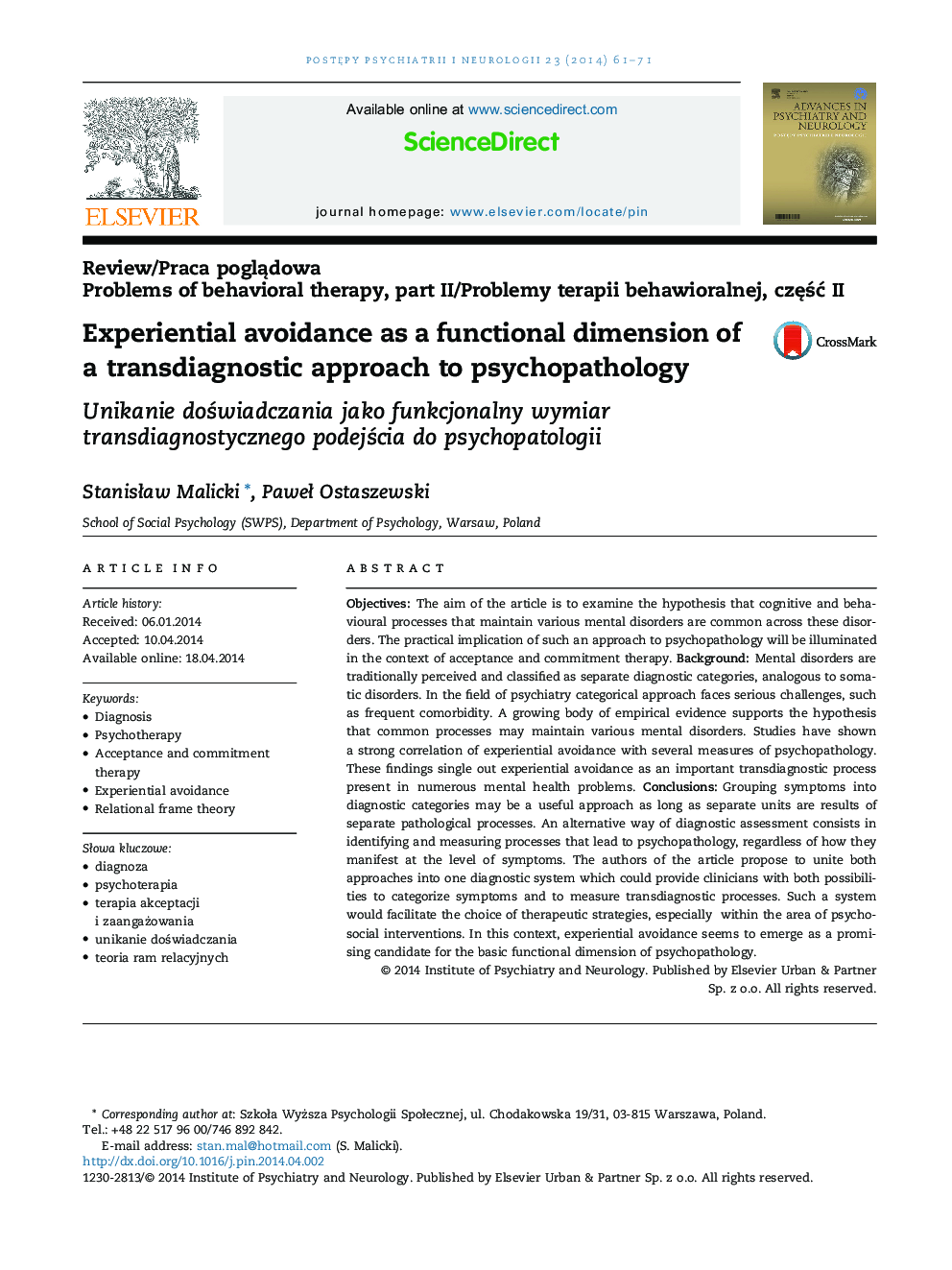| Article ID | Journal | Published Year | Pages | File Type |
|---|---|---|---|---|
| 331719 | Postepy Psychiatrii i Neurologii | 2014 | 11 Pages |
ObjectivesThe aim of the article is to examine the hypothesis that cognitive and behavioural processes that maintain various mental disorders are common across these disorders. The practical implication of such an approach to psychopathology will be illuminated in the context of acceptance and commitment therapy.BackgroundMental disorders are traditionally perceived and classified as separate diagnostic categories, analogous to somatic disorders. In the field of psychiatry categorical approach faces serious challenges, such as frequent comorbidity. A growing body of empirical evidence supports the hypothesis that common processes may maintain various mental disorders. Studies have shown a strong correlation of experiential avoidance with several measures of psychopathology. These findings single out experiential avoidance as an important transdiagnostic process present in numerous mental health problems.ConclusionsGrouping symptoms into diagnostic categories may be a useful approach as long as separate units are results of separate pathological processes. An alternative way of diagnostic assessment consists in identifying and measuring processes that lead to psychopathology, regardless of how they manifest at the level of symptoms. The authors of the article propose to unite both approaches into one diagnostic system which could provide clinicians with both possibilities to categorize symptoms and to measure transdiagnostic processes. Such a system would facilitate the choice of therapeutic strategies, especially within the area of psychosocial interventions. In this context, experiential avoidance seems to emerge as a promising candidate for the basic functional dimension of psychopathology.
